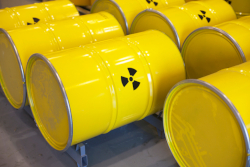Wastes Excluded from EPA Solid Waste Regulation
A material cannot be a hazardous waste if it does not meet the definition of solid waste.

Thus, wastes that are excluded from the definition of solid waste are not subject to RCRA subtitle C hazardous waste regulation. These materials are excluded for a variety of reasons, including public policy, economic impacts, regulation by other laws, lack of data, or impracticability of regulating the waste. Examples of wastes which are not defined as solid wastes include:
- pulping liquors
- spent sulfuric acid
- radioactive waste
- domestic sewage
- excluded scrap metal
EPA excludes certain solid wastes from the definition of hazardous waste. If a material meets an exclusion from the definition of hazardous waste, it is not regulated as a hazardous waste, even if the material technically meets a listing or exhibits a characteristic that would normally meet this definition. Examples of solid wastes which are not defined as hazardous wastes include:
- agricultural wastes
- mining overburden
- oil, gas, geothermal
- cement kiln dust
- injected groundwater
Knowledge Check Choose the best answer for the question.
1-6. According to the EPA, which material is not defined as solid waste?
You forgot to answer the question!
